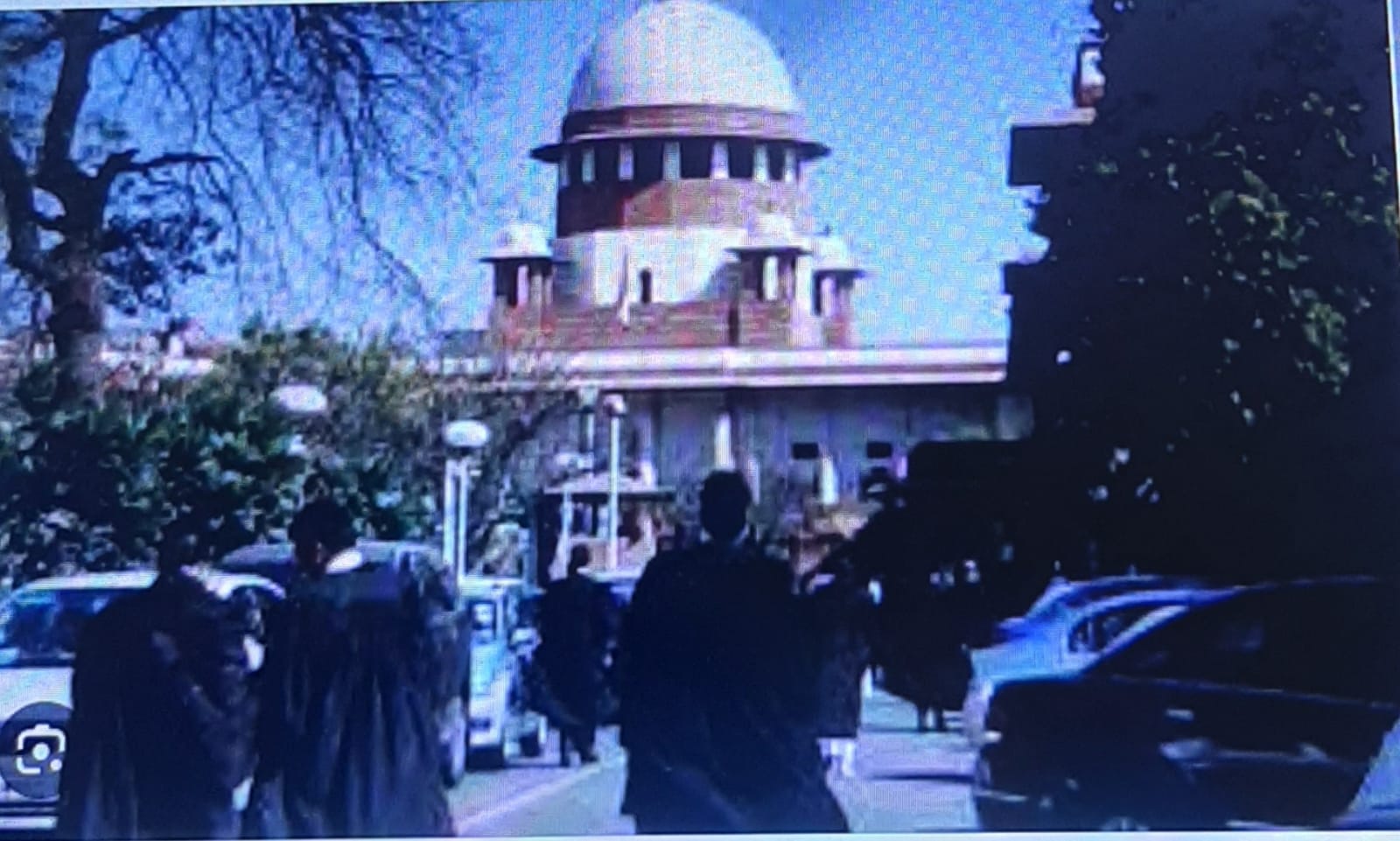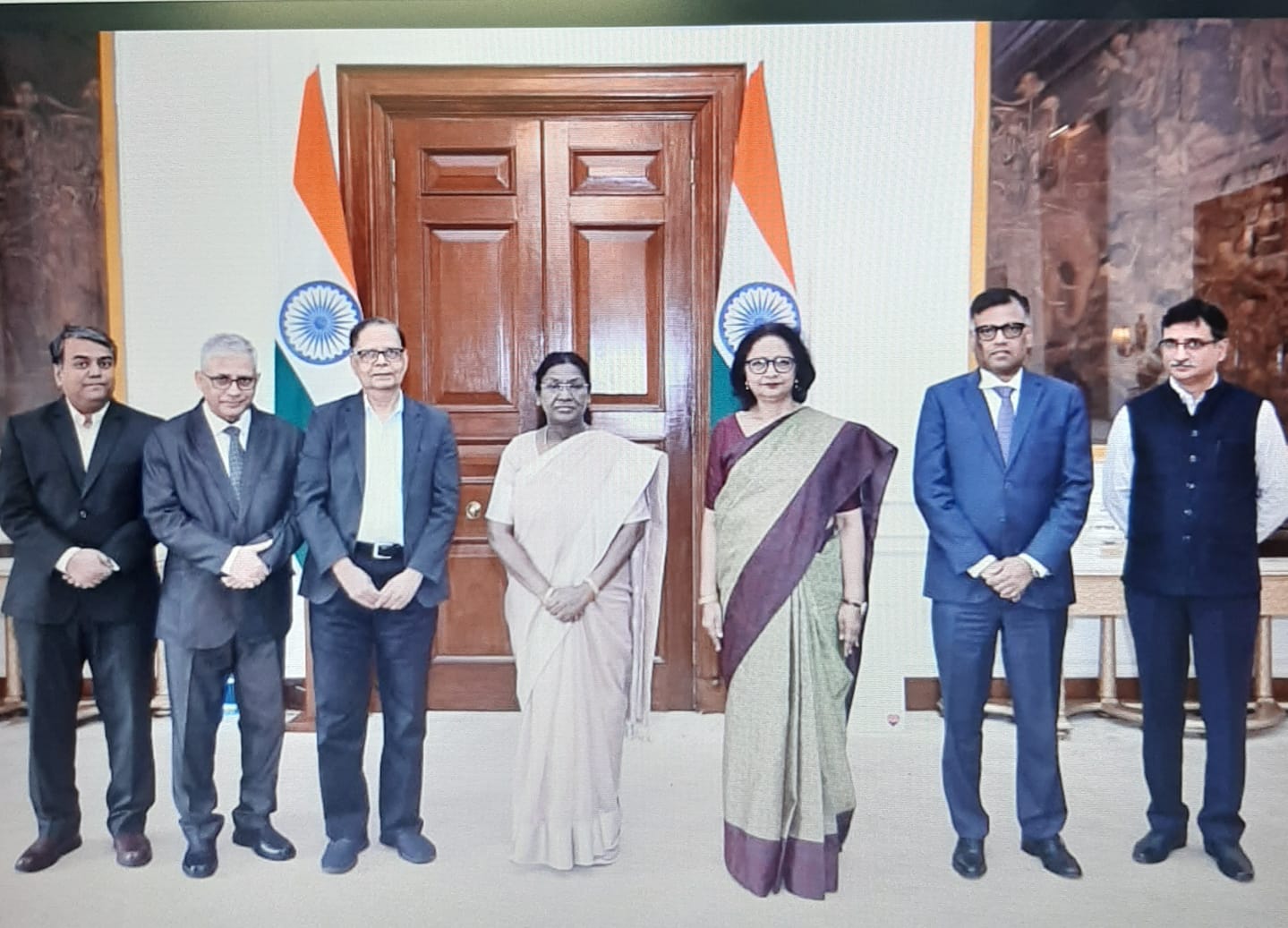
Introducing the collegium system was purportedly to protect the independence of the judiciary, but it had many flaws. The most troubling was its opacity- the absolute lack of transparency of the selection process. The recommendations of the collegium are kept totally confidential, their criteria are not clear-which raises troubling questions on transparency and accountability, writes former IAS officer V.S. Pandey
That is the fundamental question facing our judges today. Justice is the first virtue of social institutions, as truth is of systems of thought. Emerson had aptly stated that man is a little thing while he works by and for himself; but when he gives voice to the rules of justice, he is godlike. However these godlike figures are currently engaged in unseemly wranglings with the executive -not over upholding the rule of law or checking the brazen misuse of power by the authorities and safeguarding the rights of citizens by dispensing swift justice -but over the question of appointment of judges to the High Courts and the Supreme Court! If this valuable time had been utilised for debating and promoting good governance by all concerned, society would have benefited significantly.
The discourse continues to be contentious. The dispute commenced decades ago between the judiciary and the other two pillars of Indian democracy – the legislature and the executive. The independence and accountability of these three has been ensured by the Indian Constitution. But when the judiciary started self appointing judges, deviating from the provisions of the Constitution, the question arose -is this system just and constitutional? Does this ‘self-appointment’ system meet the principles of transparency and accountability? This question becomes vital especially in the context of the collegium system and the controversies arising around it.
At present, the appointment of judges of the Supreme Court and High Courts in India is done through the collegium system. This system is not specified in the Constitution, but it has evolved from some decisions of the Supreme Court of India, saliently known as the “Three Judges Case”. In the Three Judges Case, the Supreme Court asserted that the appointment of judges would be done through the collegium system- in which the recommendation of the collegium will be considered final in the appointments, transfers etc. of judges by the committee of the Chief Justice and four senior-most judges. However, Article 124 of the Constitution provides for consultation only with the Chief Justice of the Supreme Court and some other senior judges and the right to take the final decision regarding the appointment was vested with the President of India.
Introducing the collegium system was purportedly to protect the independence of the judiciary, but it had many flaws. The most troubling was its opacity- the absolute lack of transparency of the selection process. The recommendations of the collegium are kept totally confidential, their criteria are not clear-which raises troubling questions on transparency and accountability. The public or the Parliament has no right to challenge or review the decisions of the Collegium, which negates democratic accountability. Periodically, there have been allegations about the biased selections made through the Collegium system – appointments are frequently made on the basis of personal recommendations, acquaintances and regional bias. No clarifications are given and no complaints have been investigated. Should such an arbitrary malfunctioning selection process not be corrected?
The Constitution makers had envisioned objectivity and neutrality in the process of judicial appointments- in which the roles of the executive, judiciary and the President would be complementary to each other. But the Collegium system tilted this balance in favour of the judiciary, which is not democratic. In 2014, the Parliament unanimously passed the National Judicial Appointments Commission Act (NJAC Act), which aimed to bring transparency and accountability in the appointment of judges. In 2015, the Supreme Court declared this Act unconstitutional-as it alleged that NJAC would endanger the independence of the judiciary!
No law or procedure is flawless. So NJAC also can not be said to be perfect. But it was a significant step forward towards transparency and public participation. The collegium system was supposed to curb the increased political interference in the appointment of judges in the High Court and Supreme Court, which was affecting the independence of the judiciary as politicians were selecting unsuitable people, with their political affiliations for appointment as judges. Competence and neutrality were purportedly junked. But when the judges themselves are indulging in flagrant nepotism and selecting inappropriate judges through the collegium system, does it not taint the entire system ? In such circumstances, how will the perilous situation be improved? The participation of those popularly elected by the public, who are paramount in our democratic governance are not allowed any say in the appointment of judges- despite the provision of the Constitution-is the consequence of the arbitrary diktat of the collegium system.
Recently, the credibility of the judiciary was further shaken when fifty crores of rupees were discovered at the residence of a High Court judge. Silence still prevails. Does the public not have the right to know where the fifty crores of rupees found in Justice Yashwant Verma’s house came from? Why is Justice Verma not being openly questioned? Are judges above the law of the country? Should judges not be interrogated by the investigating agency ? Are judges not subject to the rule of law? Why are these honourable Lords – who promptly issue orders for a CBI investigation in the pettiest of corruption cases- astonishingly silent on this brazen case of discovery of a humungous stash of notes- worth fifty crores from the residence of a High Court judge? Who else has ever been given the right of internal investigation in a criminal case?
Covering up such an egregious incident with the fig leaf of internal investigation is a mockery of the rule of law. It will aggravate corruption in society as the judiciary will lose the moral strength to purge corruption or enforce accountability. Who will guard the guardians themselves? How can secrecy/ lack of punishment shield our venerable judges even when caught with the looted evidence ?
The judiciary has to answer a vital question. When the government, democratically elected by the people, is empowered to take all the decisions related to the lives of the billions, the security of the nation, to take the final decision on whether to make the atom bomb , the decision to make war or peace with another country, all matters relating to domestic and foreign trade, all economic matters, employment of the people, food, education, health, then can it be declared incapable only of appointing a few judges? Why do some judges insist on arrogating this right of appointment ,unchecked, to themselves – defies comprehension.
A permanent solution to this critical issue is possible only by making the judicial appointment system transparent, accountable and balanced. For this, the collegium system should be abolished and as per the provisions of the Constitution, the concerned parties in this matter, the government and the judiciary, should together strive to resolve it. Open minds, empathy , purging the holier than thou mindset and constructively cooperating in the interest of the country ,will facilitate the preparation of a robust constitutional system through which only capable and honest people will be appointed to judicial posts. Then justice shall be dispensed to all.
It is necessary for the judiciary to be independent. That does not warrant that it should develop a completely closed ,opaque system for itself. In a democracy like India, where transparency, accountability and public participation are essential , the appointment of sacrosanct judges should be done through a balanced, constitutional and open process. The numerous questions being raised on the integrity of an increasing number of judges are interrogating their selection too- through the collegium system -for years. The eroding faith in the judiciary must be expediently checked ,Justice is calling upon Judges to look beyond their self interests and deliver for greater good.
(Vijay Shankar Pandey is former Secretary Government of India)









